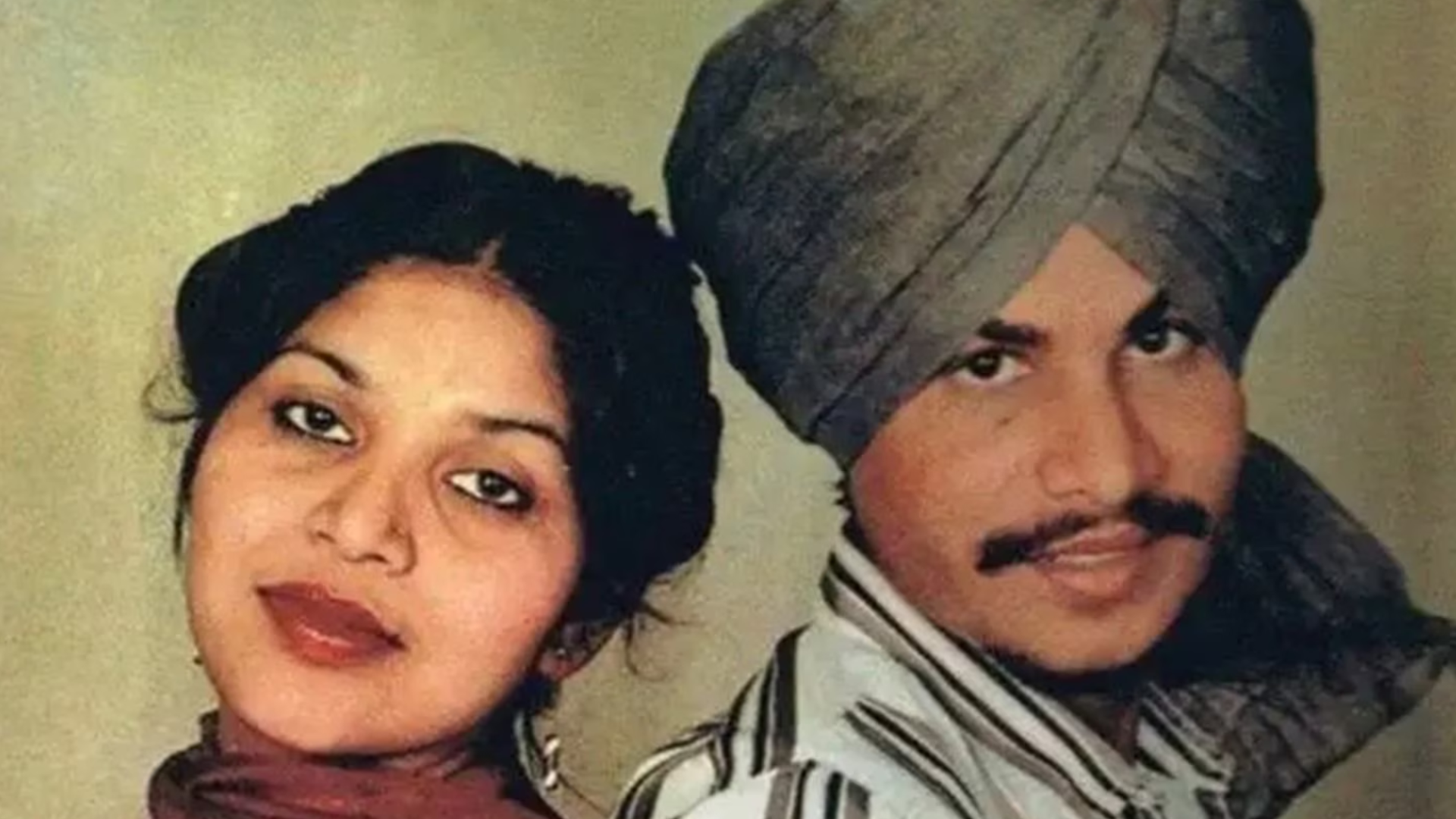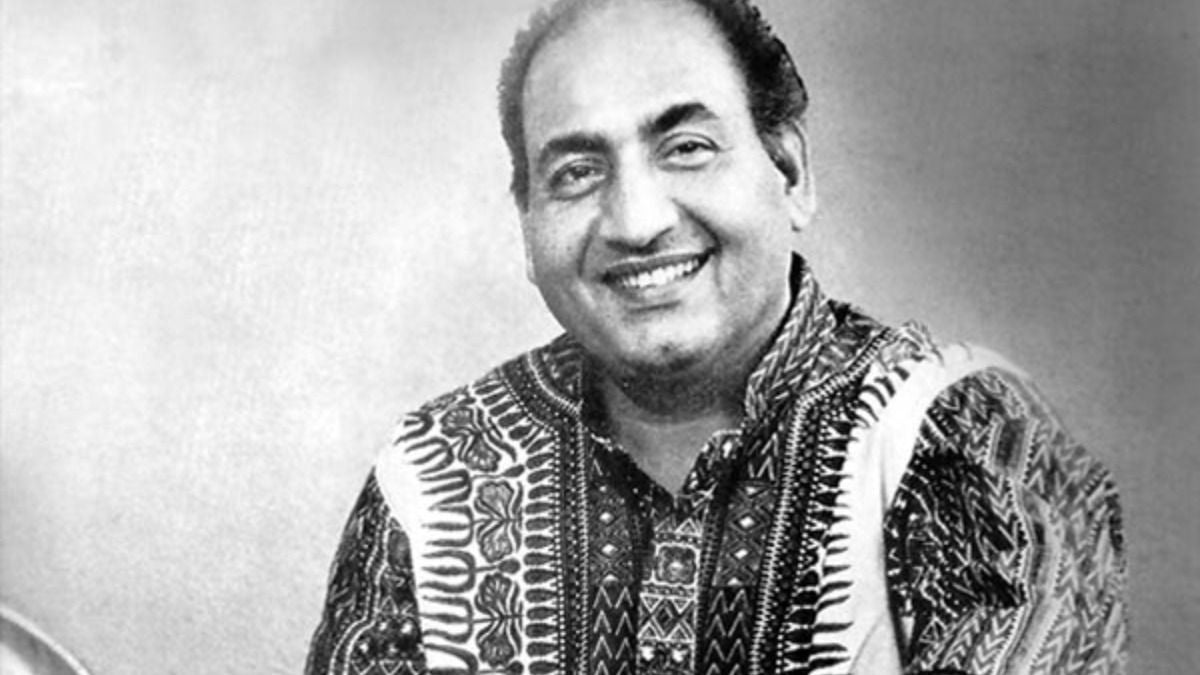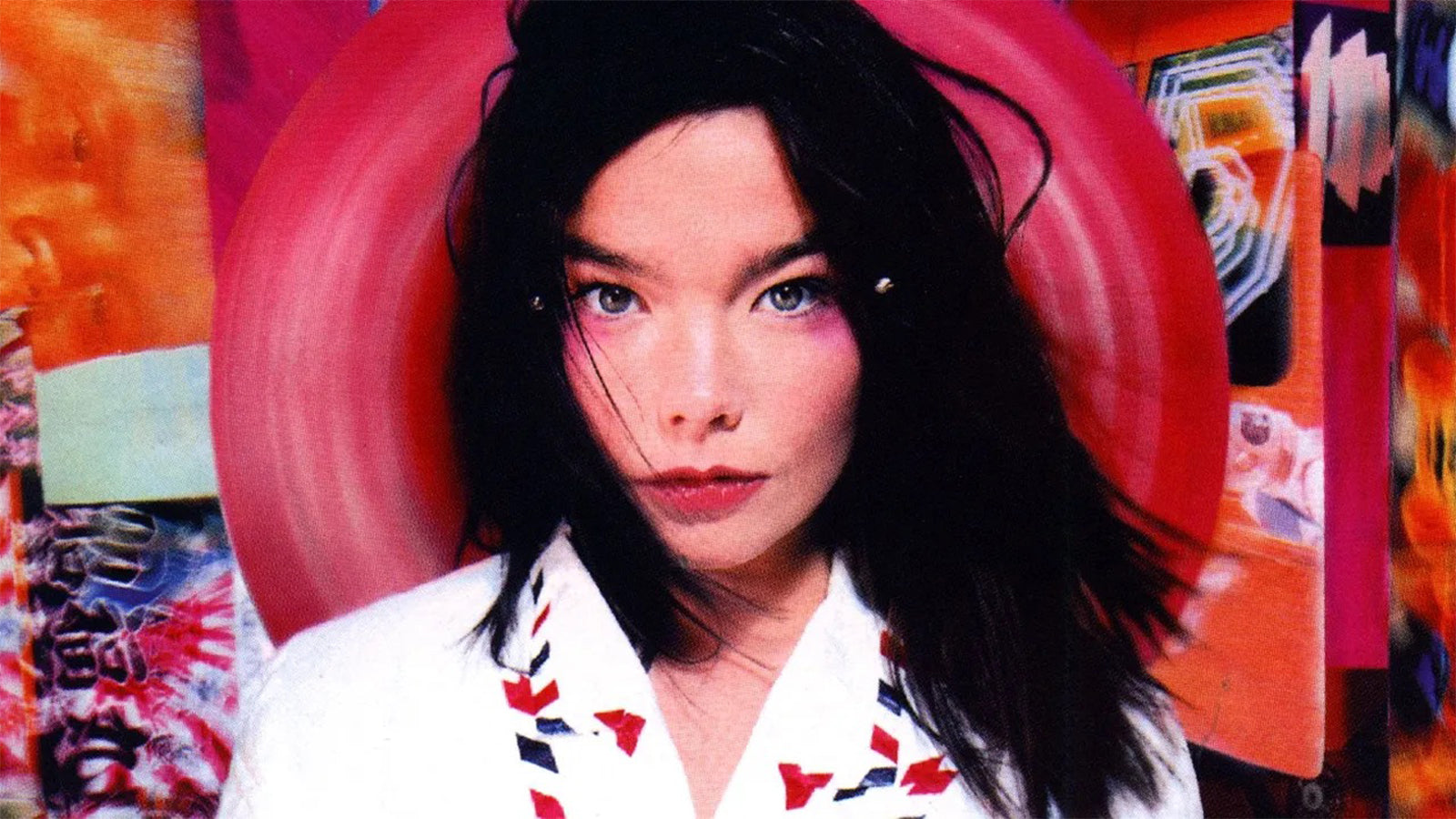Street Poet: How Chamkila Defied Punjabi Norms Through his Music

Amar Singh Chamkila remains one of Indian music’s most paradoxical figures. A man from the margins who sang in the idiom of the streets, his voice travelled far beyond its origins - echoing through fields, truck radios, wedding processions, and drawing rooms alike.
He confronted Punjab’s unspoken truths; and provoked moralists even as he united communities in song, mirroring the desires, frustrations, and contradictions of ordinary Punjabis.
Chamkila’s early life was shaped by loss and labor. After his mother’s death, he worked odd jobs, joined a cloth mill, and trained as an electrician to support his family. Music, however, was both refuge and rebellion. He picked up the harmonium, tumbi, and dholki, performing with village drama troupes and learning how rhythm and story could bind a crowd.
The arrival of the cassette player in the 80s transformed Punjab’s musical landscape; suddenly, songs could travel faster than radio or television ever allowed. Chamkila’s raw, melodic voice became the soundtrack of the villages and small towns that had emerged from the Green Revolution.
Chamkila began writing, composing, and performing songs about infidelity, alcohol, and female desire - subjects that society shunned but everyone recognized. His lyrics, full of colloquial words like chapkar, patola, and peengh, blurred the line between the sacred and profane. In his world, the vaili—the local gangster—was a folk hero, a symbol of defiance against authority and class hierarchy.
But fame in Punjab came with peril. On March 8, 1988, in Mehsampur, gunmen opened fire as Chamkila arrived for a performance, killing him, his wife Amarjot, and two band members. He was twenty-eight. The case remains unsolved.
Decades later, the same themes of caste pride, feudal masculinity, and rural bravado run through the songs of newer icons like Sidhu Moose Wala. To listen to Chamkila today is to hear a Punjab both exuberant and uneasy—where art speaks what society won’t, and where one man’s forbidden voice still echoes across a landscape that never quite let him live, but refuses to let him die.
Jija Lak Minle
Jija Lak Minle LP; 1980
This song is one of Chamkila’s early hits, from the LP Jija Lak Minle. It captures youthful longing, village romance, and his signature direct style. With simple instrumentation and emotional delivery, it resonated powerfully in rural Punjab. The song helped solidify his reputation as a folk-pop voice speaking to everyday life among rural audiences.
Hikk Utte So Ja Ve
Hikk Utte So Ja Ve LP; 1985
This title track from his 1985 LP Hikk Utte So Ja Ve showcases Chamkila’s emotional depth. The song’s theme is introspective, invoking solitude, loss, or longing. Its simple arrangement allows his voice and lyrics to dominate, creating an intimate space for listeners to reflect. The record further extended his reach beyond live shows into home listening audiences.
Lak Mera Kach Warga
Lak Mera Kach Warga LP; 1982
“Lak Mera Kach Warga” uses metaphor to speak of fragility, identity, and social belonging. Chamkila blends folk melodies with bold, earthy lyrics about life’s uncertainties. It remains a favorite in retrospective collections of his work.
Naam Jap Le
Naam Jap Le; 1986
A more spiritual or exhortative turn in Chamkila's output is “Naam Jap Le.” Released circa 1986, it appeals to devotional sensibilities, urging remembrance. This shows Chamkila's range — not limited to earthy or provocative themes but also able to touch on religious devotion in his own voice.
Baba Tera Nankana
“Baba Tera Nankana” is among his devotional or lyrical songs invoking Sikh heritage (Nankana Sahib). Though precise release date or LP attribution is unclear, the song is a part of his charitable/spiritual side, reflecting a more contemplative mood. It remains part of Chamkila’s long-term legacy through compilations.
Tar Gayi Ravidas Di Pathri
Another song with devotional or socially rooted tone, “Tar Gayi Ravidas Di Pathri” references the saint Ravidas, connecting regional, religious, and communal sentiment. While footnotes on its original album or year are sparse, it shows Chamkila’s engagement with folk beliefs and spiritual culture.
Sharbat Wango
“Sharbat Wango” evokes imagery of sweetness, longing, and refreshment — a metaphorical emotional balm. The melody, likely folk-oriented, gives Chamkila space to bring raw vocal nuance, while the lyric invites listeners to feel solace or comfort.
Talwar Main Kalgidhar Di
A devotional/historical register: the title invokes the Guru (“Kalgidhar”). These religious albums broadened his reach and helped him pivot away from “obscenity” accusations into sangat spaces. Year/title presence is corroborated in the Wikipedia bio’s discography summary.
Chak Lao Drivero Purje Nu
A workaday vignette (“driver, take up the parts”), this one spotlights his fascination with trades, travel, and the road. It’s chatty, kinetic, and tailor-made for live repartee. Appears on the Lak Mera Kach Warga LP.
Pehle Lalkare Naal
Jija Lak Minle; 1980
A breakout duet with Amarjot from Chamkila’s early LP era. Built on punchy folk phrasing and conversational lyric, it spotlights his gift for everyday idiom and call-and-response energy that played brilliantly on stage. Often cited among his earliest “hits,” it sits on the 1980 HMV LP alongside other staples from this phase.
Takue Te Takua
Lak Mera Kach Varga; 1982
Frequently mentioned as his first recorded song in biographies, it also appears on the Lak Mera Kach Varga tracklist. The lyric’s wordplay and percussion-forward bounce foreshadow his later stage ferocity.
Banhan Wich Bhabi
The title points to family dynamics (sister/sister-in-law), a theme Chamkila mined for humour and friction. It’s typical of his domestic micro-dramas — short scenes set to nimble folk rhythm.
Mirza
Mirza appears in Chamkila’s performance/folk song compilations, but there’s no verifiable album or year attribution in credible discographic sources. The versions online show his characteristic vocal intensity and rural storytelling motifs. In many uploads, Mirza is grouped with hits such as Pehle Lalkare Naal, implying it is part of his core repertoire.
Imtiaz Ali’s Amar Singh Chamkila (2024) revisits the life of Punjab’s most controversial musician
Starring Diljit Dosanjh and Parineeti Chopra, the film traces Chamkila’s meteoric rise, his provocative lyrics, and his violent death in 1988. Shot like a musical documentary and scored by A.R. Rahman, it captures both the euphoria and tragedy of an artist who gave voice to the unspeakable.




Comments
MRS DEJANA IVICA — 1 day ago
TANGIBLE INFORMATION ABOUT LOAN PLANNING… THIS HAPPY NEW YEAR..
This is not a normal post that you see every day on the internet where people give fake reviews and false information about excellent financial assistance. I am aware that many of you have been scammed and that fake agents have taken advantage of those seeking loans. I will not call these normal reviews, I will call this situation where I live a witness to how you can get your loan when you meet the company’s requirements. It really does not matter if you have a good credit rating or government approval, all you need is a proper ID card and a valid IBAN number to be able to apply for a loan with an interest rate of 3%. The minimum amount is 1000 euros and the maximum amount that can be borrowed is 100,000,000 euros. I give you a 100% guarantee that you can get your loan through this reliable and honest company, we operate 24 hours online and provide loans to all citizens of Europe and outside Europe. They sent me a document that was checked and tested before I got the loan, so I invite anyone who needs a loan to visit them or contact them via email: michaelgardloanoffice@gmail.com
WhatsApp for Europe: +38591560870
WhatsApp for USA: +1 (717) 826-3251
After you contact them, let them know that Mrs. Dejana Ivica from Zagreb gave you the information. Seeing is believing and you will thank me later when you get a loan from them. I made a promise that after I get a loan from them, I will post the good news to everyone online. If you have friends or relatives, including colleagues, you can tell them about this offer and that it is happening.
Christopher William —
DR UYI has done it for me, His predictions are 100% correct, He is real and can perform miracles with his spell. I am overwhelmed because I just won 336,000, 000 million Euro from a lottery jackpot game with the lottery number DR UYI gave me. I contacted DR UYI for help to win a lottery via Facebook Page DR UYI, he told me that a spell was required to be casted so that he can predict my winning, I provided his requirements for casting the spell and after casting the spell he gave the lottery numbers, I played and won 336,000,00 euros. How can I thank this man enough? His spell is real and like a God on Earth. Thank you for changing my life with your lottery winning numbers. Do you need help to win a lottery too? contact Dr UYI via drzukalottospelltemple@gmail.com OR WhatsApp on +17174154115
Big Bull —
SELLING FULLZ SSN USA NIN UK SIN CANADA
AUS SPAIN ITALY GERMANY Fullz available
Fresh Stuff & Fresh Spammed
Available in bulk quantity
Valid & guaranteed info
DL front back with selfie
DL with issue & exp dates
DL with SSN
SSN DOB DL ADDRESS—> USA
NIN DOB DL ADDRESS—> UK
SIN DOB ADDRESS MMN—> CANADA
Tax Return Filling Fullz & KYC Stuff
HACKING & SPAMMING TOOLS & TUTORIALS
COMPLETE PACKAGES WITH ALL TOOLS & TUTORIALS INCLUDED
SCAM PAGES|SCRIPTING
CASH OUT & CARDING STUFF
LOAN METHODS & CARDING METHODS
Many Other stuff for cashing out|filling for loans|KYC
All stuff will be 101% Genuine, nothing generated or edited
Contact us here only (Be aware from scammers)
Telegram – @ killhacks ’ @ leadsupplier
What’s App – +1 7277..88..612..9
TG Channel – t.me/ leadsproviderworldwide
Email – hacksp007 at gmail dot com
VK Messenger – @ leadsupplier
USA STUFF:
SSN DOB ADDRESS FULLZ
SSN DOB DL ADDRESS FULLZ
SSN DOB DL ADDRESS EMPLOYMENT & BANK INFO FULLZ
SSN DOB DL ADDRESS DL ISSUE & EXP INFO FULLZ
FULLZ WITH MVR
USA DL|ID FRONT BACK WITH SELFIE & SSN
USA LLC DOCS
USA W-2 FORMS
USA Passport Photos
High Credit Scores Pros
SweepStakes & Dead Fullz
Business EIN Company Pros|EIN Lookup
Dumps & CC with CVV
-———————————————————————-
UK (UNITED KINGDOM) STUFF:
NIN DOB ADDRESS FULLZ
NIN DOB DL ADDRESS FULLZ
NIN DOB DL ADDRESS SORT CODE & ACCOUNT NUMBER FULLZ
High Credit Scores Pros Fullz
UK DL Front Back with Selfie
UK Email & Phone number Leads
UK Passports
Consumer Leads UK
Bank Leads with sort code & account number UK Fullz
-———————————————————————-
CA (CANADA) STUFF:
SIN DOB ADDRESS FULLZ
SIN DOB ADDRESS MMN FULLZ
SIN DOB ADDRESS MMN PHONE POST CODE FULLZ
Canada DL Front Back with Selfie
CA Email & Phone Number leads
High Credit Score Fullz
Canada Passports
-————————————————————————
OTHER STUFF WE’RE PROVIDING WITH GUARANTEE:
EMAIL LEADS (Crypto|Unemployment|Casino|Medical|Health|Office365)
Car Database with Vehicle registration numbers
Email Combos
I.P & Proxies
Different type of Docs available
TOOLS AVAILABLE
SMTP RDP SHELLS C-PANELS
KALI LINUX
RATS & VIRUSES
Web-Mailers
SMS & Email Senders
Scam Pages & Scripting
Office365 Spamming Stuff
#FULLZ #TOOLS #TUTORIALS #EBOOKS #USAFULLZ #UKFULLZ #CAFULLZ #DLPHOTOS
#HACKING #SPAMMING #CARDING #SPOOFING #LEADSUSA #COMBOS #CRYPTOLEADS
#UKLEAD #CANADALEADS #HIGHCREDITSCOREPROS #CRYPTOPAYMENTS #PROS #OFFICE365
#SENDERS #FULLZSHOP #DUMPSCVV #CCFULLZ #USACC #FULLZDUMPS #DUMPSID #DUMPSDL
#EMAILLEADS
Contact here only (Be aware from scammers)
Telegram – @ killhacks ’ @ leadsupplier
What’s App – +1 7277..88..612..9
TG Channel – t.me/ leadsproviderworldwide
Email – hacksp007 at gmail dot com
VK Messenger – @ leadsupplier
MRS DEJANA IVICA —
TANGIBLE INFORMATION ABOUT CHRISTMAS LOAN FOR PLANNING…
This is not a normal post that you see every day on the internet where people make false statements and false information about huge financial assistance.. I am aware that many of you have been scammed and that fake agents have taken advantage of those seeking loans. I will not call this a normal statement, I will call this situation where I live a witness to how you can get your loan when you meet the company’s requirements. It really does not matter to have a good credit rating or government approval, all you need is a valid ID card and a valid IBAN number to be able to apply for a loan with an interest rate of 3%. The minimum amount is 1000 euros and the maximum amount that can be borrowed is 100,000,000 euros. I give you a 100% guarantee that you can get your loan through this reliable and honest company, we operate 24 hours online and provide loans to all citizens of Europe and outside Europe. They sent me a document that was checked and tested as valid before I got the loan, so I invite anyone who needs a loan to visit them or contact them via
Email: michaelgardloanoffice@gmail.com
WhatsApp for Europe: +385915608706
WhatsApp for USA: +1 (717) 826-3251
After you contact them, let them know that Ms. Dejana Ivica from Zagreb gave you the information. Seeing is believing and you will thank me later when you get a loan from them. I made a promise that after I get a loan from them, I will post the good news to everyone online. If you have friends or relatives, including colleagues, you can tell them about this offer and that it is happening this CHRISTMAS.
Fat Rosa —
HOW I RECOVERED MY LOST CRYPTO FROM FAKE BROKER ONLINE.
I had lost over $752,000 by someone I met online on a fake investment project. After the loss, I had a long research on how to recover the lost funds. I came across a lot of Testimonies about THE HACKANGEL RECOVERY TEAMS. I contacted them providing the necessary information and it took the experts about 48 hours to locate and help recover my stolen money. If anyone is looking for a Recovery firm to Recover your lost Crypto. You can contact THE HACKANGEL RECOVERY TEAMS . I hope this helps as many out there who are victims and have lost to these fake online investment scammers. You can contact them by using
Email at support@thehackangels.com
Website at www.thehackangels.com
WhatsApp +1(520)200-2320
Usman Bello —
ALPHA KEY BTC RECOVERY: SEEK ADVICE FROM A LICENSED CRYPTO RECOVERY HACKER
Only a small number of skilled hackers has the special hacking knowledge and abilities needed to recover lost Bitcoin. Although there are a lot of recovery websites available, it’s crucial to exercise caution because 99% of them are run by con artists who pose as trustworthy businesses. It is preferable to go for a reliable hacker who can assist you in getting your money back, such as Alpha Key BTC Recovery. I lost $326k in Bitcoin due to mining, but they were able to retrieve it. contact info below
Mail : Alphakey@consultant.com
Website : www.alphakeyrecovery.com
WhatsApp contact :15714122170
Signal contact:15403249396
lucas e,merson —
After over 30 years in the cockpit as a commercial pilot, flying across continents and safely landing thousands of passengers, I was ready for retirement. Like many others, I had put part of my earnings into cryptocurrency—Bitcoin, specifically—as a long-term investment. Over time, that small investment grew substantially, eventually reaching £2,000,000. It wasn’t just a number on a screen; it was my safety net, my future, my reward for decades of hard work and sacrifice. Then, in a single moment, it was all gone. I logged into my crypto wallet one morning and was met with an empty balance—zero. My entire portfolio had vanished. What I later learned was that I had been the victim of a sophisticated form of cyber theft known as cryptojacking. The hackers had exploited vulnerabilities in my system, compromised my private keys, and stealthily transferred every last coin to their own wallets. The feeling? Crippling. I reached out to every avenue I could think of—banks, law enforcement, online crypto forums—but the answer was always the same: “There’s nothing we can do.” I was devastated. It felt like years of planning and saving had been erased overnight. That was until I came across.COINSRECOVERYWORLDWIDE Naturally, I was cautious. The internet is riddled with “recovery experts” who prey on victims twice. But from my first contact with Coinsrecoveryworldwide, the difference was obvious. Their team was transparent, knowledgeable, and deeply empathetic. They didn’t offer empty guarantees—they offered action, and more importantly, they delivered. Here’s what set them apart: Unmatched Technical Expertise Coinsrecoveryworldwide began by conducting an advanced forensic analysis of my case. They traced my stolen Bitcoin through multiple layers of obfuscation—including mixers, tumblers, and shadow wallets commonly used by criminals to launder crypto assets. Their team used blockchain analytics and cyber-intelligence tools to follow the trail where others had hit a dead end. Dark Web Surveillance and Server Penetration They didn’t stop at blockchain tracking. Using legal and ethical cyber-infiltration methods, they breached one of the attacker’s remote servers—uncovering a treasure trove of data: stolen credentials, transaction logs, and access routes. This breakthrough allowed them to identify the specific IPs and even the hardware fingerprints used during the theft. Collaboration with Exchanges and Global Partners Coinsrecoveryworldwide then leveraged their global network and worked directly with several crypto exchanges to flag, freeze, and intercept the stolen assets before they could be laundered or converted. They also collaborated with cybersecurity partners to neutralize parts of the botnet infrastructure the hackers had used. Successful Recovery Within weeks, 95% of my stolen funds—equivalent to £1,900,000—was securely returned to a new, uncompromised wallet. Watching that balance reappear felt like being rescued from a plane crash. I was overwhelmed with relief and gratitude. This experience has taught me that all is not lost after a scam—not when you have the right people in your corner. Coinsrecoveryworldwide didn’t just recover my funds. They restored my sense of justice, safety, and peace. They are not just another tech firm—they are specialists in real-world cybercrime intervention. They combine unmatched technical acumen with genuine care for the people they help. To anyone facing the same nightmare I went through: don’t give up. Coinsrecoveryworldwide is the real deal. If they could recover my £2,000,000 there’s hope for you too. Contact COINSRECOVERYWORLDWIDE Security Company 📧
🌐 Website: [https://coinsrecoveryworldwide.mobirisesite.com/] 📧 Email: Coinsrecoveryworldwide@gmail.com 💬 WhatsApp:+1765-823-6083
Take the step to secure your future—you’re not alone
GH —
USA UK CANADA FULLZ AVAILABLE
FRESH DATABASES & VALID INFO
Guaranteed stuff with replacement offer
SSN DOB DL ADDRESS USA
SIN DOB ADDRESS MMN CA
NIN DOB DL ADDRESS SORT-CODE UK
REAL DL & ID Front Back with Selfie
Children Fullz 2011-2023
Young Age & Old Age Fullz
CC Fullz with CVV & Billing Address
Dumps with Pin Track 101 & 202
Contact for any query & order here:
TG – @ leadsupplier / @ killhacks
What’s App – (+1).. (727). (788). (6129).
TG Channel – t.me/leadsproviderworldwide
VK Messenger ID – @ leadsupplier
E-mail – bigbull0334 at gmail dot com
*(Be aware from scammers using our cloned names on TG)
Providing fresh stuff with 100% guarantee
80% to 90% connectivity ratio
All stuff will be fresh & genuine
USA FULL NAME SSN DOB DL ADDRESS PHONE EMAIL ACCOUNT & ROUTING NUMBER
UK FULL NAME NIN DOB DL ADDRESS PHONE EMAIL SORT CODE & ACCOUNT NUMBER
CANADA FULL NAME SIN DOB ADDRESS PHONE EMAIL MMN
#SSN #SSNDOBDL #SellSSN #CCShop #CCSELLCVV #ShopSSNDOBDLADDRESS #FULLZ #SSNFULLZ
#REALDLSCAN #YoungAgeFullz #Fullzseller #USAFULLZ #FULLZUSA #SellerSSNDOB #ShopSSNDOB
#SIN #SINDOBDL #SellSIN #SINMMNFULLZ #MMNPROSSIN #MMNSIN #CCShop #CCSELLCVV #ShopSINDOBDLADDRESS #FULLZ #SINFULLZ
#REALDLSCAN #YoungAgeFullz #Fullzseller #CANADAFULLZ #FULLZCANADA
#NIN #NINDOBDL #SellNIN #CCShop #CCSELLCVV #ShopNINDOBDLADDRESS #FULLZ #NINFULLZ
#REALDLSCAN #YoungAgeFullz #Fullzseller #UKFULLZ
Other stuff we’re providing as well, listed below:
===========
DL Front back with selfie USA|UK|CA|AUS|GR|FR|RU|CHINA e.t.c
Fullz with MVR & W-2 Form
Business Pros Company fullz with EIN
High credit scores pros (700+ score)
Dead fullz bulk quantity
Tax return filling fullz (FASFA|UBER|DOORDASH|SBA|PUA|UI|BENEFITS)
USA Fullz with DL Front Back with SSN & Selfie
Email Leads available in different categories:
===========
Crypto Leads
Fresh Sweep Stakes
Business P2P leads
Medical Leads
Education Leads
Country wise Leads
Bank Details Leads with phone numbers
Specific States & Cities Leads USA UK CAN
Car Database leads with registration No.
Doctor’s Leads
Health Leads
Facebook|Amazon|LinkedIn|Ebay Leads
Payday Leads
Mortgage Leads
All type of Sp’a’mming Tools & Tutorials are available for learning purpose.
>SMTP
>RDP
>BRUTES
>SHELLS
>C-panels
>Web-Mailers
>Bulk SMS & E-Mail Senders
>Sc@mpages & Scripting
>Cash out & Carding Tutorials
>H@cking Tools & Tutorials
Many other Stuff we can provide on demand as well
Feel free to contact with us, we’ll assist you 24/7
We’re providing stuff for learning to make money as well
Proper guidance & assistance will be provided
Waiting for you guy’s
Here we are for you:
-TG – @ leadsupplier / @ killhacks
-What’s App – (+1).. (727). (788). (6129).
-TG Channel – t.me/leadsproviderworldwide
-VK Messenger ID – @ leadsupplier